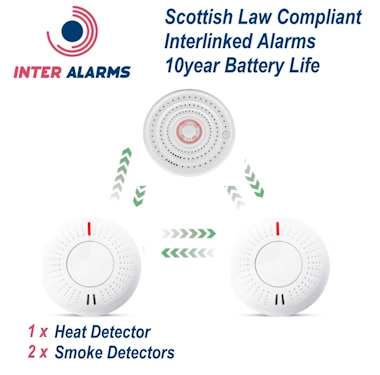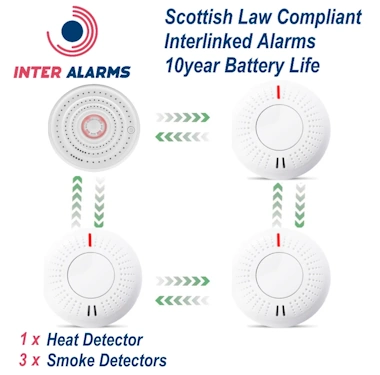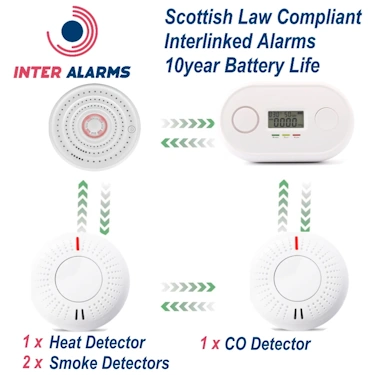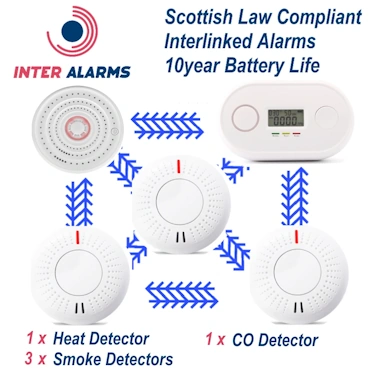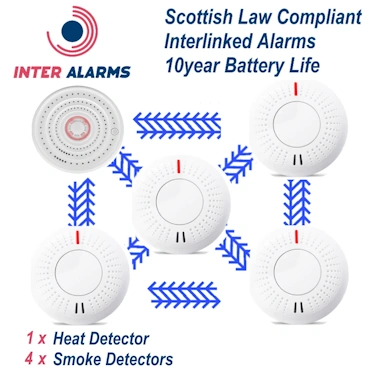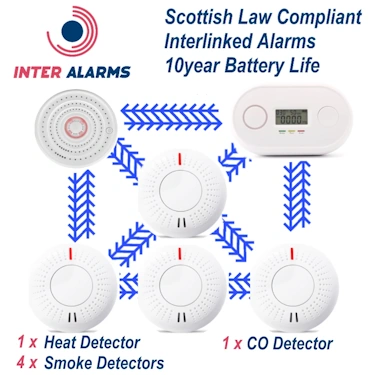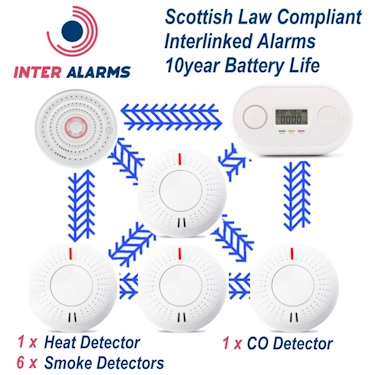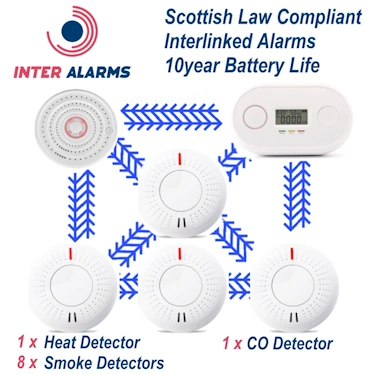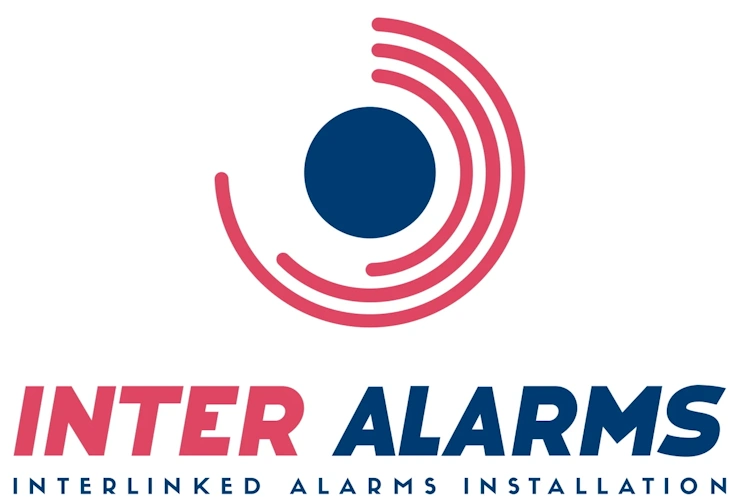Introduction
In recent years, the Scottish Government has introduced new regulations requiring ALL homes to have interlinked smoke and heat alarms. This legislation aims to enhance safety by ensuring that if one alarm goes off, all alarms in the home will sound, providing an early warning system that can save lives. This article will delve into the details of these regulations, the types of alarms required, and how to ensure your home is compliant.
The Importance of Interlinked Alarms
Interlinked smoke and heat alarms are crucial for home safety. Traditional standalone alarms may not be heard throughout the entire house, especially if the fire starts in a distant room. Interlinked alarms ensure that when one alarm detects smoke or heat, all alarms in the home will sound, providing a comprehensive alert system that can wake up and alert everyone in the house, regardless of where the fire starts.
Regulations and Requirements
As of February 2022, all homes in Scotland are required to have interlinked smoke and heat alarms. The specific requirements are as follows:
- Smoke Alarms: One smoke alarm in the living room or the room you use most, one smoke alarm in every hallway and landing.
- Heat Alarms: One heat alarm in the kitchen.
- Carbon Monoxide Alarms: If you have a carbon-fuelled appliance like a boiler, open fire, or wood burner, you must also have a carbon monoxide detector in the same room. This does not need to be linked to the smoke alarms.
All alarms must be ceiling-mounted and interlinked. This can be achieved through wireless radio frequency interlinking, which does not require WiFi.
Choosing the Right Alarms
When selecting smoke and heat alarms, it is important to ensure they meet the following standards:
- Smoke Alarms: BS EN14604:2005
- Heat Alarms: BS 5446-2:2003
- Carbon Monoxide Detectors: British Kitemark EN 50291-1
There are various types of alarms available, including battery-operated and mains-wired options. Both types can be interlinked via radio frequency. For those with special needs, such as individuals with hearing impairments, there are specialized alarms with features like vibrating pads and flashing lights.
Installation and Maintenance
Proper installation and maintenance of smoke and heat alarms are essential for their effective operation. Here are some tips:
- Installation: Follow the manufacturer's instructions for installing the alarms. Typically, they should be mounted on the ceiling, away from corners and vents. Use the screws and rawl plugs provided with the alarms.
- Testing: Regularly test your alarms to ensure they are functioning correctly. Most alarms have a test button that you can press to check if the alarm sounds.
- Cleaning: Dust and debris can interfere with the sensors in smoke and heat alarms. Clean your alarms regularly with a vacuum cleaner or compressed air.
- Battery Replacement: If you have battery-operated alarms, DO NOT attempt to replace the batteries. All battery powered smoke and heat alarms must be fitted with a 10 year, tamperproof bateery. If your battery-powered smoke alarm does not have a tamperproof battery fitted it is not compliant with the new rules and must be replaced..
- Replacement: Smoke and heat alarms have a limited lifespan, usually around 10 years. Replace your alarms according to the manufacturer's recommendations.
Common Issues and Troubleshooting
Even with proper installation and maintenance, you may encounter some issues with your smoke and heat alarms. Here are some common problems and how to address them:
- False Alarms: False alarms can be caused by steam, cooking fumes, or dust. Ensure your alarms are installed in appropriate locations, away from kitchens and bathrooms. Regular cleaning can also help prevent false alarms.
- Chirping Alarms: A chirping alarm usually indicates a low battery or a malfunction. Check the battery and the installation date of the alarm. If it is at the end of it's lifespan, usually about 10 years, replace the full alarm.
- Interference: Other electronic devices can sometimes interfere with wireless interlinked alarms. Ensure there are no devices nearby that could cause interference.
Special Considerations
There are some special considerations to keep in mind when installing smoke and heat alarms:
- Open Plan Areas: If you have an open plan area, such as a combined living room and kitchen, you may need additional alarms to cover the entire space. Ensure that the alarms are no more than 7.5 meters from any point in the room.
- Specialized Alarms: For individuals with hearing impairments or other special needs, consider installing specialized alarms with features like vibrating pads, flashing lights, or strobe lights.
- Carbon Monoxide Detectors: If you have carbon-fuelled appliances, ensure you have carbon monoxide detectors installed in the same room. These detectors do not need to be interlinked with the smoke and heat alarms.
Compliance and Legal Responsibilities
It is the responsibility of homeowners to ensure their properties comply with the new regulations. For rental properties, landlords are responsible for installing and maintaining smoke and heat alarms. Failure to comply with these regulations can result in penalties and legal consequences.
Conclusion
Smoke detectors and alarms are indispensable tools for safeguarding your home and loved ones from fire hazards. By understanding the different types, proper installation, and maintenance practices, you can ensure your home is well-protected. Don't wait until it's too late—install and maintain your smoke alarms today for peace of mind and safety.
